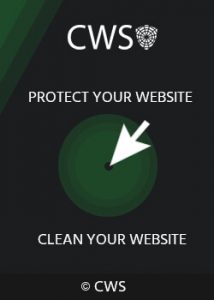
Every website owner should be worried about being hacked. But owners of eCommerce websites should worry about the safety of their website more than others.
Why? Because those websites are much more profitable for hackers than the ordinary ones.
First of all, people use eCommerce sites to purchase goods, obviously. This means that every customer enters his or her personal information (credit card data, for example) into the purchase form and that is a nice opportunity for hackers to steal that data and use it for their own benefit?
Secondly, thanks to a large amount of users interacting with those websites, they became a nice base for malicious content, redirects, malware, spam and phishing pages. And the biggest problem is that websites are being hacked in bulk and this process does not even take long – just in a few minutes hackers can have hundreds of sites at their disposal.
Most of us know about targeted hacks, large companies suffer from them frequently. But it is less likely to become a victim of a targeted attack if you are a local eCommerce business. Usually, hackers target specific websites only when they were paid to do so.
As an eCommerce website owner you should understand that you are responsible not only for your website’s safety, but for the safety of your customer’s money and personal information. That’s why not only should you, but it is an absolute must for a eCommerce website owner to protect his website from a hacker’s attacks.
The consequences of eCommerce website hack
The main thing every business cares about is its’ reputation. People should trust you, or no one will purchase anything from your website. If users see any suspicious ad or banner on your website (adult content, for instance), that will immediately arouse suspicion. If users’ antivirus or browser will warn them about a malicious content on your website, they will probably leave your website and will not return.
Another effect of hacker’s attack is getting blacklisted. Once a search engine or antivirus puts your website on their blacklist, you will lose traffic rapidly. Needless to say that getting the website out of all blacklists will take a few days. And during this time your website will be invisible for users. Blacklisting will significantly influence your income, so why not minimize the risk in advance?
How to protect your eCommerce website from hackers’ attacks?
1. Get an antivirus
Most website owners do not even know that their website is already infected. A good antivirus will always find existing viruses and malicious code on your website. Also, it will prevent further infections. It is important to scan your website constantly, and antivirus will help you with this task. – for additional information please read our article – 10 THINGS ANY GOOD ANTIVIRUS MUST BE ABLE TO DO
2. Educate your employees
Hackers can easily hack your website by reaching your employees first. Thieves can send malicious emails to your managers and when the employee clicks the link in this email, hacker gets his or her account information. So now thieves have the opportunity to log into your system and insert malware into the website. That’s why you should protect your employees’ computers and email boxes along with your website.
Your employee can become a hacking tool for thieves. That’s why you should explain to your team which information can’t be shared and why. Also, employees need to know how to keep the customer’s data. Ignorance always generate problems.
3. A secure eCommerce platform is a must
Do not intrust your business to questionable platforms. When picking an eCommerce platform pay attention to the PCI compliance and SLL Certificates. Make sure that the platform provides additional protection for your website.
4. Don’t forget to update
Keep an eye on updates. Even the smallest outdated plugin is a chance for a hacker to get into your website. Web server updates are usually done by the host, but if not – this task is on you.
5. No need to store vulnerable data
Try to be as minimalist as possible when it comes to users’ data. Do not keep old data, store only information you will need for refunds or charge-backs. The more records on your customers you have, the bigger the chance your website will be hacked.
6. Do not forget about PCI scans
Mark the day in your calendar and perform PCI scans regularly. It will lower the possibility of vulnerabilities on your eCommerce platform .
7. Check for vulnerabilities
If your website itself is vulnerable, you will definitely become a victim of a hacker’s attack it just a matter of time. Cobweb security team has huge experience in protecting websites. Our specialists will find vulnerabilities on your website and fix them.
Maintaining an eCommerce website is a hard job and a big responsibility. By taking preventive steps and knowing about the pitfalls you will lower significantly the chances of a hacker harming your business.

